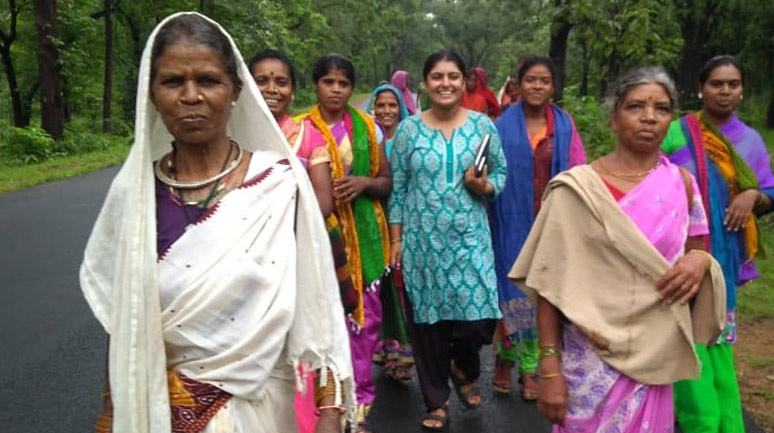In Quest of Fellow Travellers on a Road Less Travelled: Destination Mendha


Questioning the dominant mode of life and livelihood choices and criticallynanalyzing the development interventions aimed at attaining them, the villagers of Mendha choose the most suitable method of a collective way of life for them, with a sustainable form of governance mechanism and ecology, adherence to values, stakeholder mobilization and horizontal spread in nearby villages
Background
M ENDHA, A SMALL VILLAGE IN GADCHIROLI district (Maharashtra), holds a special place in the development arena of India. Today, when most of the development models for rural India are centred on individual aspirations and an extractive mode of production, Mendha adheres to a commune life-world, defiantly yet non-violently.
PRADAN organized an exposure visit for its professionals from 26 to 29 August, 2018, to understand the relevance of what was being done in Mendha to their own context. They were accompanied by leaders of three villages—Jana in Gumla district, Jharkhand; Chattania in Singrauli district and Jharna Ghughri in Dindori district, Madhya Pradesh.
The visit aimed at understanding this unique model from the ‘worm’seye’ view, at redefining engagement within PRADAN and at creating vibrancy for the collective way of living among the participant villagers. The village-level leaders, who participated, became the co-researchers in the Action Research (AR). The AR intends to explore sustainable means of intensification of livelihood in different socio-ecological systems to create alternative models, along with re-skilling the community. The three partners of the Action Research on Sustainable Intensification (ARSI) are the villagers, Azim Premji University (APU) and PRADAN. The nature of actions undertaken by the Collectives in Mendha, since the 1980s, often questioned the dominant mode of life and livelihood choices and critically analyzed the development interventions aimed at attaining them. This critical and constructive perspective led them to choose the most suitable method of the collective way of life for them.
The nature of actions undertaken by the Collectives in Mendha, since the 1980s, often questioned the dominant mode of life and livelihood choices and critically analyzed the development interventions aimed at attaining them. This critical and constructive perspective led them to choose the most suitable method of the collective way of life for them

